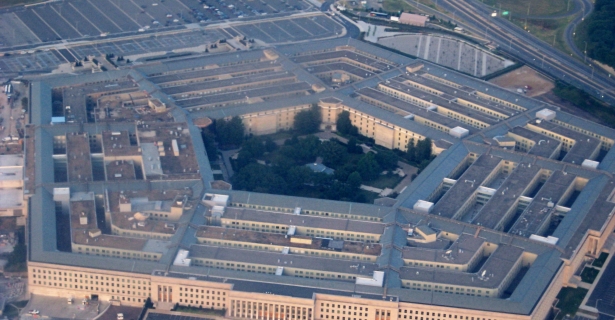This summer I’ve been working as an intern for the Office of the Under Secretary of Defense for Policy. The primary purpose of the Under Secretary’s office is to drive policy formulation for the Department of Defense and to serve in conjunction with the military’s Joint Staff to ensure that these policies inform military strategy and vice versa. The Under Secretary’s office also serves as the focal point for DOD interaction with the national security policy making and decision making process. This process, and our office’s place in it, is complex. Despite a good understanding by most citizens about how our government works, we do not know the actual activities that take place to make sure national security policy gets made. I figured it would be good to do my blog posts this summer the players in the process, and how the process is supposed to work.
We should start with the players. These are the agencies, departments, organizations, and other actors that drive the policy making process. I’ve separated them into two groups: the outside actors and the inside players.
The Outside Actors
Congress: Traditionally the Executive branch has control over foreign and national security policy, however, through their oversight, authorization, and appropriations roles, Congress plays a huge role on the policy making process.
Think Tanks: Think tanks are a critical component in the national security policymaking process. These organizations employee big players in the national security community. They publish research and opinions constantly about how the United States should approach certain decisions or what kind of policy needs to be implemented. The inside players are connected to these organizations and their experts through personal and professional connections.
The Press: The press plays a vital role in the process. It serves as the sounding board for many decisions and stories published in newspapers and on the Internet can cause actions to be taken by decision makers. Additionally, the press plays an important role in questioning the decisions made.
The Intelligence Community (IC): While it might seem weird to say that a community of government agencies is an outside player in the national security policy making process, the IC provides the information necessary for the other players in the process to make decisions. As information providers the IC is not involved in the actual national security policymaking process.
The Inside Actors
Departments and Agencies: Each department and agency has a working level office that handles the creation of policy for that department or agency. For example, in the Department of Defense the working level policy office is the Office of the Under Secretary of Defense for Policy. These offices also work with other working level offices throughout the national security policymaking process.
The National Security Council Staff (NSCS): The NSCS works for the National Security Advisor in the White House. They serve as the primary interagency connection in the policymaking process and drive the process from the perspective of the current administration. They work with the departments and agencies to create recommendations for leadership consideration and approval.
The Deputies: These are the individuals who are second or third in command at their respective departments and agencies. Many times the person who is considered the deputy will depend on the subject of the meeting. For example, at the Department of Defense, for some topics the Deputy Secretary of Defense is considered the deputy and for other topics it is the Under Secretary of Defense for Policy. The deputies are responsible for looking at the research and recommendations provided by the various departments and agencies, and then, from that information, make their own recommendations on specific topics for the principals and the President.
The Principals: These are the leaders of the various departments and agencies involved in the process. They serve as the principal advisors to the President on issues related to their department or agency. For example, the Secretary of Defense is the principal for the Department of Defense.
The National Security Advisor: This person serves as the President’s primary point person for national security issues in the White House. He or she manages the National Security Council Staff and works to bring together a variety of views from the departments and agencies and shape them into a coherent national security policy. The National Security Advisor chairs the principals committee meetings.
The President: The President is the final decision maker in the process. He relies on the advice of their National Security Advisor as well as military and other advisors to make the best decision possible for the situation. The President chairs the National Security Council meetings.

